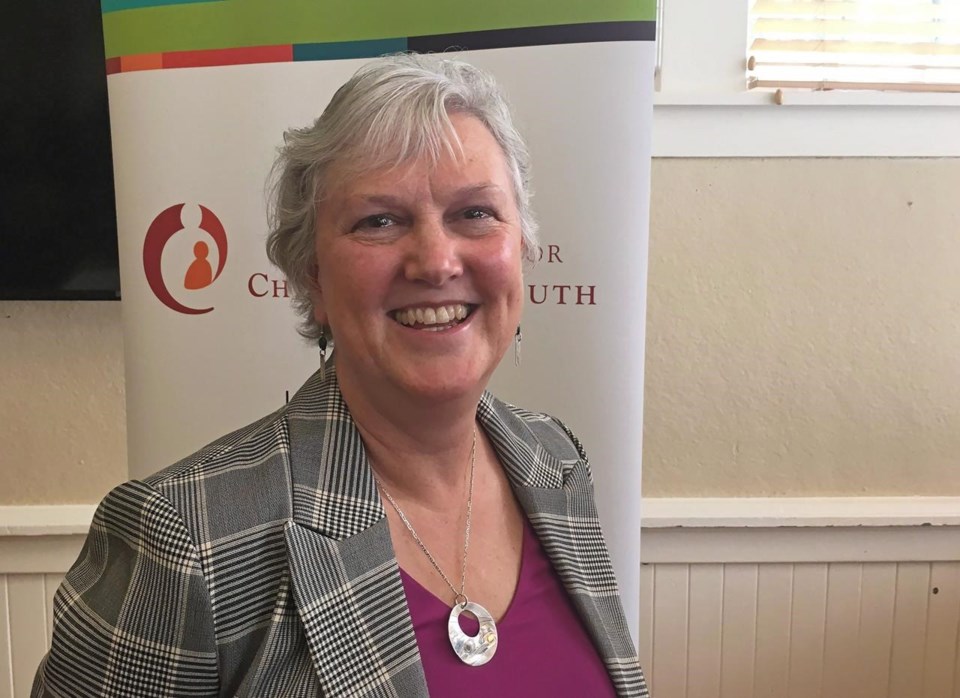VICTORIA — British Columbia's representative for children and youth is calling on the province to improve its support system for youth aging out of government care.
The report from Jennifer Charlesworth's office says the current system "virtually shapes a life of poverty" for vulnerable youth in B.C.
About 850 young people transition out of care every year at age 19 and supports for them are "notoriously scarce, inequitable, rigid and a poor fit," said the report, which is the office's fifth in six years on the same issue.
Youth transitioning out of care are expected to go from being kids to adults in just 24 hours, Charlesworth said during a news conference on Tuesday.
"These young people are suddenly left to figure out everything about their lives – their housing, how to budget, what to do about work and school, where to find a dentist, a doctor and someone to talk to."
The provincial government's temporary measures in response to the pandemic demonstrate that it can act quickly to make the kind of changes advocates have long been calling for, said Charlesworth.
The latest report points to problems with the system that provides youth who leave care with up to $15,000 a year for four years, as long as they're going to school or participating in a life skills or rehabilitation program.
Less than 10 per cent of eligible young adults were receiving money under the young adults program as of March, it said, and there are significant disparities in access based on gender, race, region and education level.
In response to the pandemic, the B.C. government expanded eligibility criteria to include a wider range of options for life skills and rehabilitation programs and youth who are receiving funding may continue to get the money until September 2021, even if their eligibility status changes.
The Ministry of Children and Family Development is also allowing youth turning 19 to stay in their current living arrangements until March 2021.
But those changes are temporary and Charlesworth is calling for a renewed system, including the automatic enrolment into the young adults program up to age 27 for youth from all types of government care in B.C.
The report also recommends the creation of a provincewide system of dedicated transition workers through community agencies to provide support for these young people. It calls for improved transition planning, which should start by the age of 14.
Charlesworth said her office has heard from young people on the precipice of turning 19 who haven't had an opportunity to participate in planning for their transition, which is an expectation within the provincial program.
The target for fully implementing the report's recommendations is April 2022, said Charlesworth, pointing to research showing the current system is less cost-effective in the long run than investing in better services now.
Indigenous youth are overrepresented among those in care in B.C., and young people with backgrounds in care experience higher rates of mental health challenges and homelessness, said Charlesworth.
"Those are all vivid indicators of how badly we are failing these young people right now," she said, calling for a system that mimics how families provide support that leads young people to independence.
Mitzi Dean, minister of children and family development, responded to the report in a statement, saying services for youth in care who were transitioning into adulthood were non-existent or inadequate for many years and while the province has come a long way, there's more to do.
"I am committed to this work and to joining forces with youth and our colleagues and partners throughout the social sector to create a system that does not just provide young people from care with the bare minimum to survive, but rather creates a better system that supports them to excel, pursue their goals and reach their full potential."
The province has heard from community partners about the positive impact of the pandemic-related measures, said Dean, and it will use that feedback along with input from youth as it works to improve supports.
— by Brenna Owen in Vancouver
This report by The Canadian Press was first published Dec. 15, 2020.
This story was produced with the financial assistance of the Facebook and Canadian Press News Fellowship.
The Canadian Press



